On May 10, 2025, the 11th Graduate Academic Forum of the Department of South Asian Studies, School of Foreign Languages, Peking University, was successfully held in Room 501 of the New Building of the School of Foreign Languages. Professor Chen Ming, Dean of the School of Foreign Languages, attended the forum and delivered the opening address. Professor Saerji, Head of the Department of South Asian Studies, presided over the opening ceremony and delivered a speech. Attendees included Associate Professor Zhang Jiamei, Deputy Head of the Department of South Asian Studies; Associate Professor Zhang Xing, Head of the Bengali/South Asian Culture Teaching and Research Section; Assistant Professor Wang Jing, Head of the Hindi Teaching and Research Section; Assistant Professor Chen Ruixuan, faculty member of the Sanskrit and Pali Teaching and Research Section and Graduate Class Advisor; Professor Lin Qian from the School of History, Qingdao University, who is a visiting scholar at the Institute of Humanities and Social Sciences; and over 40 master's, doctoral, and undergraduate students from the Department of South Asian Studies. Associate Professor Zhang Jiamei and Assistant Professor Chen Ruixuan chaired the morning and afternoon sessions of the forum, respectively.
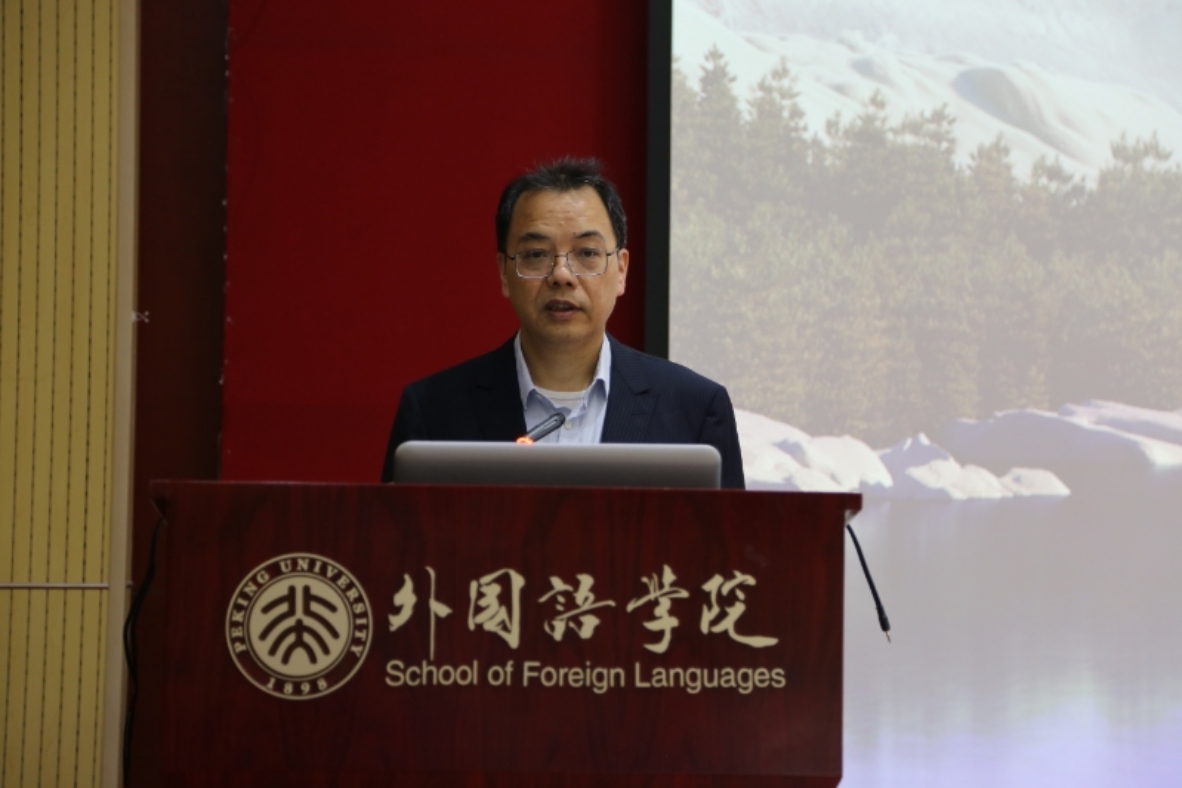
Professor Chen Ming delivering the address
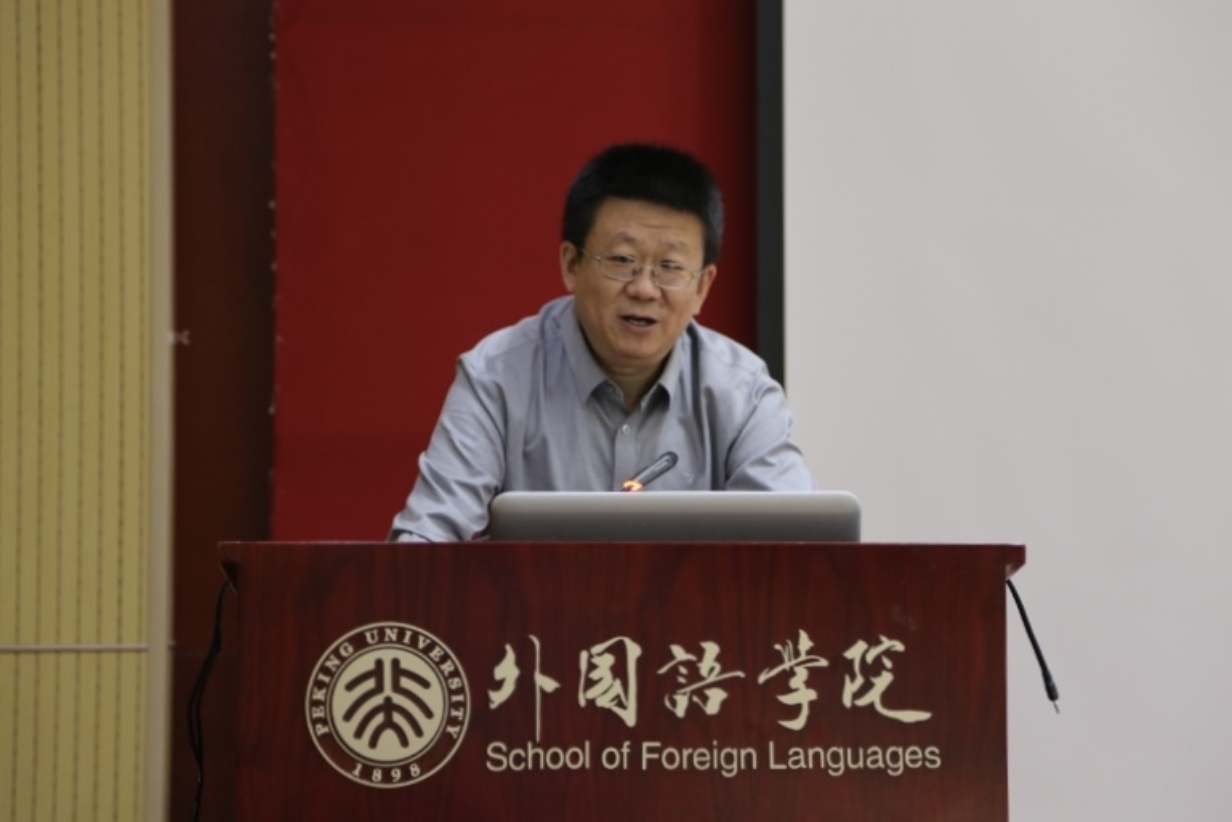
Professor Saerji delivering the address
In his address, Professor Chen Ming reviewed the development history of the Department of South Asian Studies. He emphasized the continuous development of the National Key Secondary Discipline of Indian Language and Literature, its alignment with the development of the School and the University, and national strategies. Professor Chen pointed out that the Graduate Academic Forum of the Department of South Asian Studies has become a distinguished feature among the academic activities of the School of Foreign Languages. He stated that the forum not only provides young scholars with an opportunity for mutual academic exchange and improvement but also represents an innovation and practice that inherits tradition and remains true to the original aspiration. Professor Chen called on students to serve the country through academia, to use scholarship as a foundation to voice China’s perspective internationally, to effectively narrate stories of civilizational mutual learning between China and other countries/regions, and to grow into a new generation of scholars with responsibility, commitment, mission, and vigorous dedication.
Professor Saerji reviewed the history of the Department’s Graduate Academic Forum over the past decade and extended a heartfelt welcome to all participants of the 11th forum. He emphasized the important historical and contemporary significance of the South Asian region in global development and its importance to China’s peripheral diplomacy. Professor Saerji reiterated the necessity of research spanning from classical studies to modern and contemporary disciplines, highlighting the research tradition and strengths of the Department of South Asian Studies based on language and culture. He encouraged students to freely express their views, inspire each other through dialogue, and expand boundaries through discussion, concluding with wishes for the forum’s complete success.
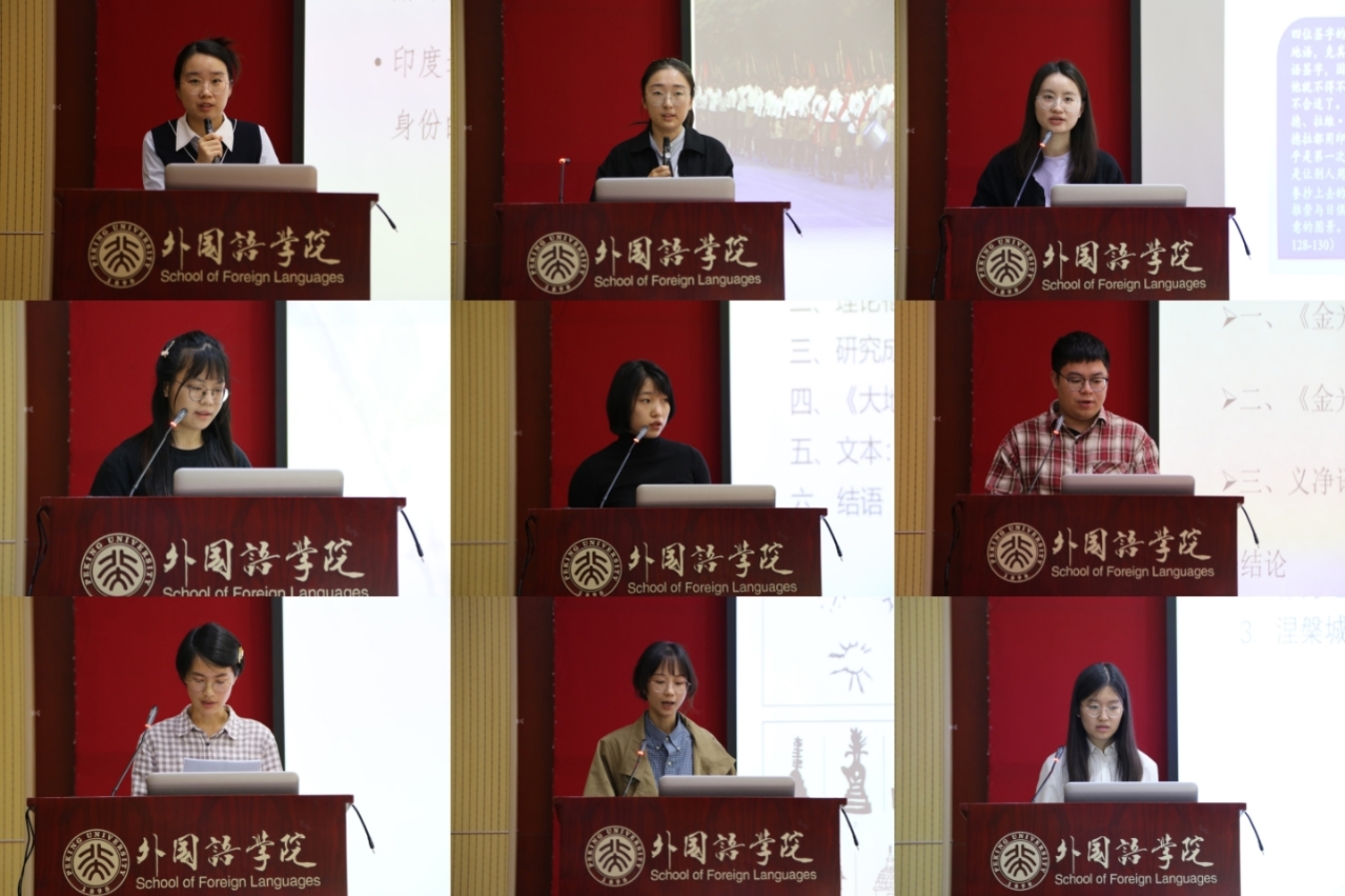
Forum Presentations
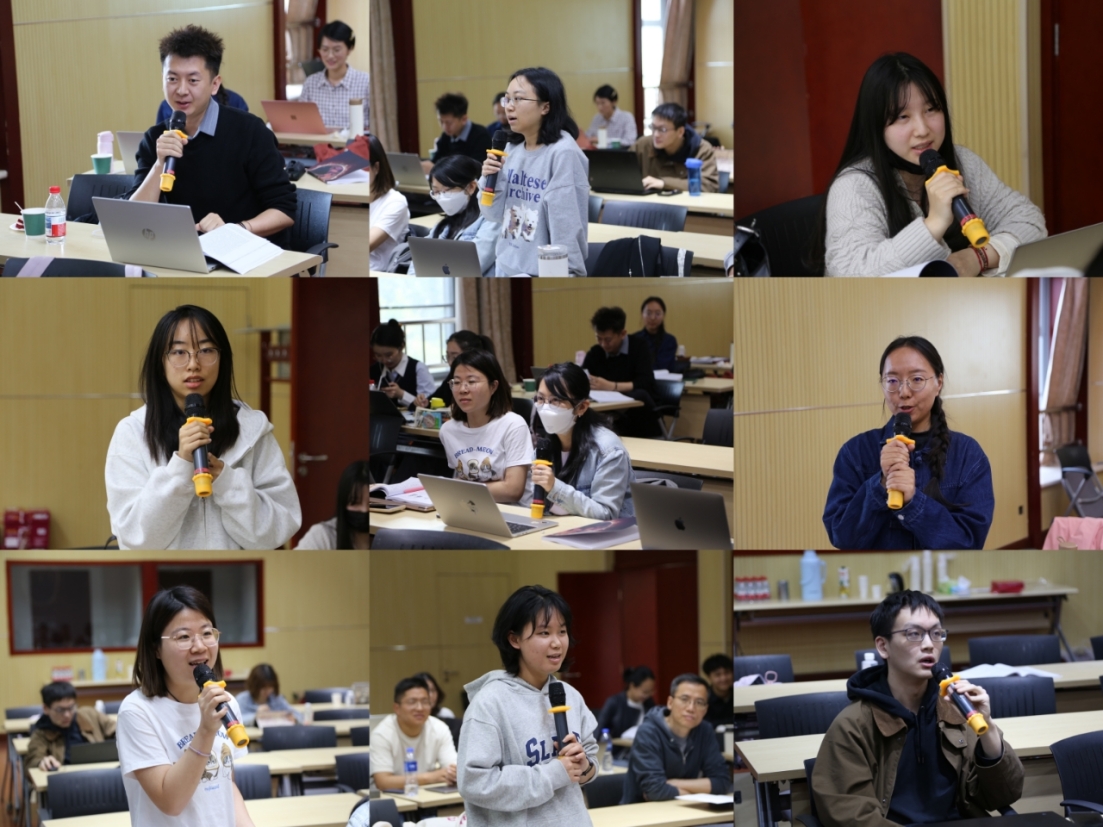
Question and Answer Session
The forum was divided into morning and afternoon sessions. In the morning session, master students Tang Rui, Tian Shiyu, Chen Yutong, Wang Xiqian, and Cen Siyi presented their research in sequence. Tang Rui’s report, “The Influence of the Communist Party of India on the Indian Progressive Writers’ Movement: Based on the Five All India Progressive Writers’ Association Conferences from 1946-1949,” pointed out that the Communist Party of India had a relatively strong influence on the political stance of the All India Progressive Writers’ Association and its movement, but a lesser influence on its class base and literary creation. Tian Shiyu delivered a report titled “The Construction of National Identity Theories Targeting the Muslim Community by the Contemporary Hindu Right Wing: A Case Study of ‘Answers Between Yakshas’”. Using Kumar’s work “Answers Between Yakshas” as the research subject, he pointed out that contemporary Hindu nationalists employ relatively flexible discursive strategies to shape the concept of Muslim “national identity”, but there remains a certain distance from deeply embedding Hindu nationalist identity within the Muslim community. Chen Yutong’s report, “Under Peace, Between China and India: Differential Writings in Indian Travelogues During the Asia-Pacific Peace Conference Period”, compared the Chinese travelogues “Morning Colors” and “From Calcutta to Beijing” by two Indian writers with different political identities during the Asia-Pacific Peace Conference period. It pointed out that the differential writing in the travelogues reflects the interaction between China and India in the literary field during the modernization process, and reflects the different paths through which Indian writers perceived themselves and other countries based on their experiences visiting China. Wang Xiqian delivered a report titled “The Interaction Between Anti-Colonial Mythology and Imagining ‘India’: An Investigation Based on the Indian Film Industry in the 1920s-30s”. Taking the Indian film industry of the 1920s-30s as the research subject, it explored film as a path of decolonization for mass media, pointing out that Indian filmmaking during this period embodied an adversarial symbiosis between the “Hollywood-style” production system and colonial rule. Cen Siyi’s report, “Ethnic Identity Writing in Urdu Partition Literature from the Perspective of Ethno-Symbolism: A Case Study of the Novel ‘The Earth’”, analyzed religious and cultural factors in the novel’s text, combined with the author’s biography, interviews, and relevant historical documents, to explore the dilemmas of Pakistani national identity construction and the author’s own writing on ethnic identity, and attempted to discuss the practical significance of the author’s reflections on constructing Pakistani national identity.
After the students delivered their presentations sequentially, the faculty judges provided pertinent and detailed comments. In the subsequent discussion and exchange session, students actively asked questions and engaged in exchange regarding the presentations. Regarding Tang Rui’s report, Chen Qiyuan raised a question about how some writers in the Indian Progressive Writers’ Movement balanced theistic religious beliefs with the Communist Party’s atheistic ideals in their creative work. Regarding Tian Shiyu’s report, Xiong Yi discussed with him the topic of “whether, compared to current academic research (rather than the Hindu Right Wing’s viewpoint), ‘Answers Between Yakshas’ contains statements that clearly contradict historical facts”. Regarding Chen Yutong’s report, Han Dandan asked, “besides Upadhyay’s opposition to empire, colonialism, and capitalism leading him towards expressions praising communist practices, are there other noteworthy factors that contributed to his spectacularized writing about New China?” Regarding Wang Xiqian’s report, Tang Rui asked whether the two elements of “‘decolonization of the local Indian industry’ and ‘the construction process of the Indian nation based on film content’” are mutually reinforcing, or if one is based upon the other. Regarding Cen Siyi’s report, Hu Tingting raised two questions: “Why choose ‘The Earth’, a work more focused on the East-West Pakistan partition, from the perspective of ethno-symbolism?” and “Is one text sufficient to support academic conclusions in nationalism research?”, discussing the profound research value of “The Earth” and prospects for further research.
In the afternoon session, doctoral students Chen Yilan, Xu Manling, Guo Yizhen, and master students Wei Zhaoyuan and Huang Yiru delivered their presentations in sequence. Wei Zhaoyuan delivered a report titled “Yijing’s Translation Assembly and the Yogācāra School: An Investigation Based on Two Commentaries on the Suvarṇaprabhāsottama Sūtra”. By comparing the commentaries on the Suvarṇaprabhāsottama Sūtra by Huizhao (Cien branch) and Shengzhuang (Ximing branch) from Yijing’s translation assembly during the Wu Zhou period, it revealed the commonalities and differences in the Yogācāra thought of the two schools and explored the impact of intellectual interaction within the translation assembly on Buddhist scripture interpretation and the transmission of new developments in Indian Buddhism. Xu Manling’s report, “Foliage Patterns and Smoke Offerings: Experiential Encoding and Expression in Tibetan Rock Art”, analyzed foliage patterns in rock art from western and northern Tibet. It proposed that these patterns serve as visual symbols of incense plants used in smoke offering rituals, reconsidering the traditional “tree worship” hypothesis, and revealed the function of these images in storing memories of ritual behavior and transmitting knowledge of religious practices in non-literate societies, providing a new perspective for reconstructing pre-literate ritual culture in Tibet. Chen Yilan delivered a report titled “A Preliminary Study of a Sanskrit Palm-Leaf Manuscript of the Amṛtakośa with Tibetan Notes from the Kāmadhenu Preserved in the Norbulingka”. By analyzing a Sanskrit palm-leaf manuscript of the Amṛtakośa from the 13th-14th century Je clan of Tsang, Tibet, and its Tibetan commentary Kāmadhenu, it revealed the practical path of Tibetan scholars studying Sanskrit lexicons relying on the commentary system, and discussed the characteristics of the textual transmission and scholarly reception of these two works in Tibet. Huang Yiru’s report, “From ‘Nirvana’ to ‘Nirvana City’”, analyzed the imagery of “path” and “gate”, the spatialization tendency of “Nirvana”, and the intertextual relationships among allegorical groups in Pali literature. It revealed the evolutionary path of the Buddhist “Nirvana City” from an abstract concept to a concrete expression, and clarified its threefold construction mechanism, which, although not found in the Pali Canon, became solidified in commentarial literature after the 5th century. Guo Yizhen delivered a report titled “How to Use the Vyākhyāyukti to Define ‘Dharma’ and ‘Hearing the Dharma’?” By analyzing citations in Bu ston’s History of Buddhism of core topics from Vasubandhu’s Vyākhyāyukti, such as the definition of “Dharma” and the merits of “hearing the Dharma”, it revealed how Bu ston inherited and applied the Vyākhyāyukti’s methods of scriptural interpretation, thereby demonstrating the profound influence of this treatise on the Tibetan Buddhist interpretative tradition.
After the students delivered their presentations sequentially, the faculty judges likewise provided sharp and earnest comments. The specially invited attending professor, Lin Qian, gave high praise to the students’ research. During the discussion session, regarding Wei Zhaoyuan’s report, Zhang Shuning raised a question about “whether there were discrepancies between the content of the literature review and the specific content of the subsequent research”, and inquired about Wei Zhaoyuan’s specific research approach. Regarding Chen Yilan’s report, Pema Yangjin asked, “the handwriting of the manuscript’s colophon and the Tibetan parts in the main text are very similar; is there a possibility of multiple people writing repeatedly?” Regarding Xu Manling’s report, Su Yuanqi asked, “how to handle the relationship between determining the function of rock art and the literature formed later than the rock art, and how to accurately define whether the function of the foliage patterns is as incense plants or merely decoration?” Regarding Huang Yiru’s report, Ouyang Fengqi asked, “the explanations regarding the ‘path’ and ‘gate’ in the text are mostly separate metaphors, but in the first section they seem to be combined; could there be conflicts between these explanations?” while Zhang Ziyan asked, “the Pali Sutta Piṭaka has clear internal stratification; how were the nature and dating of the texts themselves considered when selecting sources?”
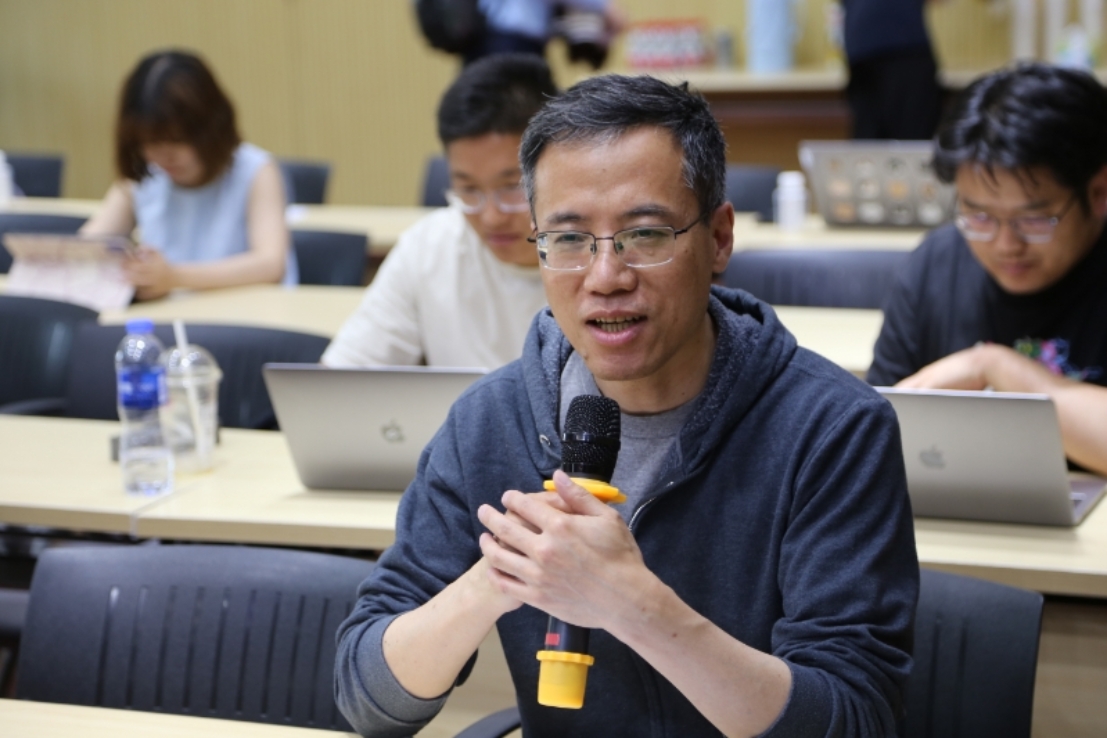
Professor Lin Qian, visiting scholar at the Institute of Humanities and Social Sciences, delivering comments
After evaluation by the faculty judges, the 10 students participating in this forum received different awards. Chen Yilan won the First Prize in the doctoral group, while Chen Yutong and Tian Shiyu won the First Prize in the master’s group.
At the forum’s closing ceremony, Professor Saerji, Head of the Department of South Asian Studies, summarized the achievements of this forum. He pointed out that the forum reports highlighted the characteristic of a large research span, from rock art around 1500 BCE to contemporary Hindu nationalism, and from texts, literature to culture, all presented in this forum, which fully reflects the academic research tradition and strengths of the Department of South Asian Studies. Finally, Professor Saerji cited the growth and accomplishments of previous forum participants as role models, encouraging everyone to communicate actively and progress together on the path of academic research.
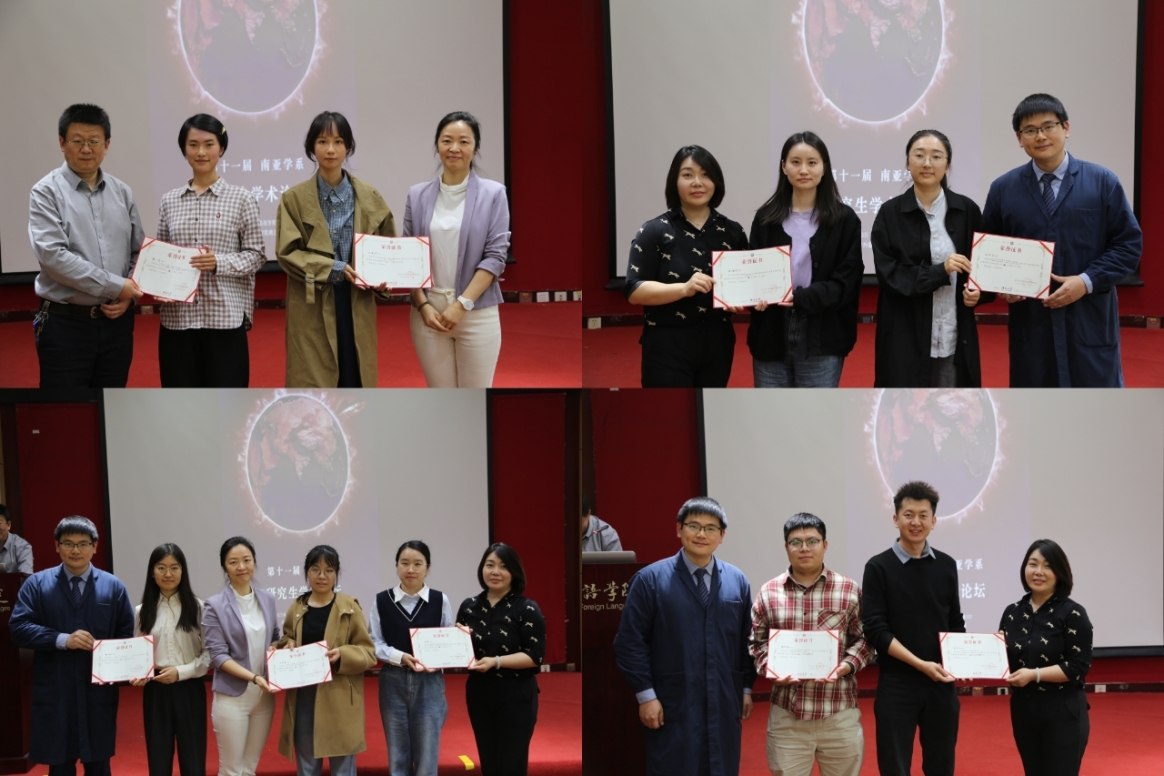
Award Ceremony
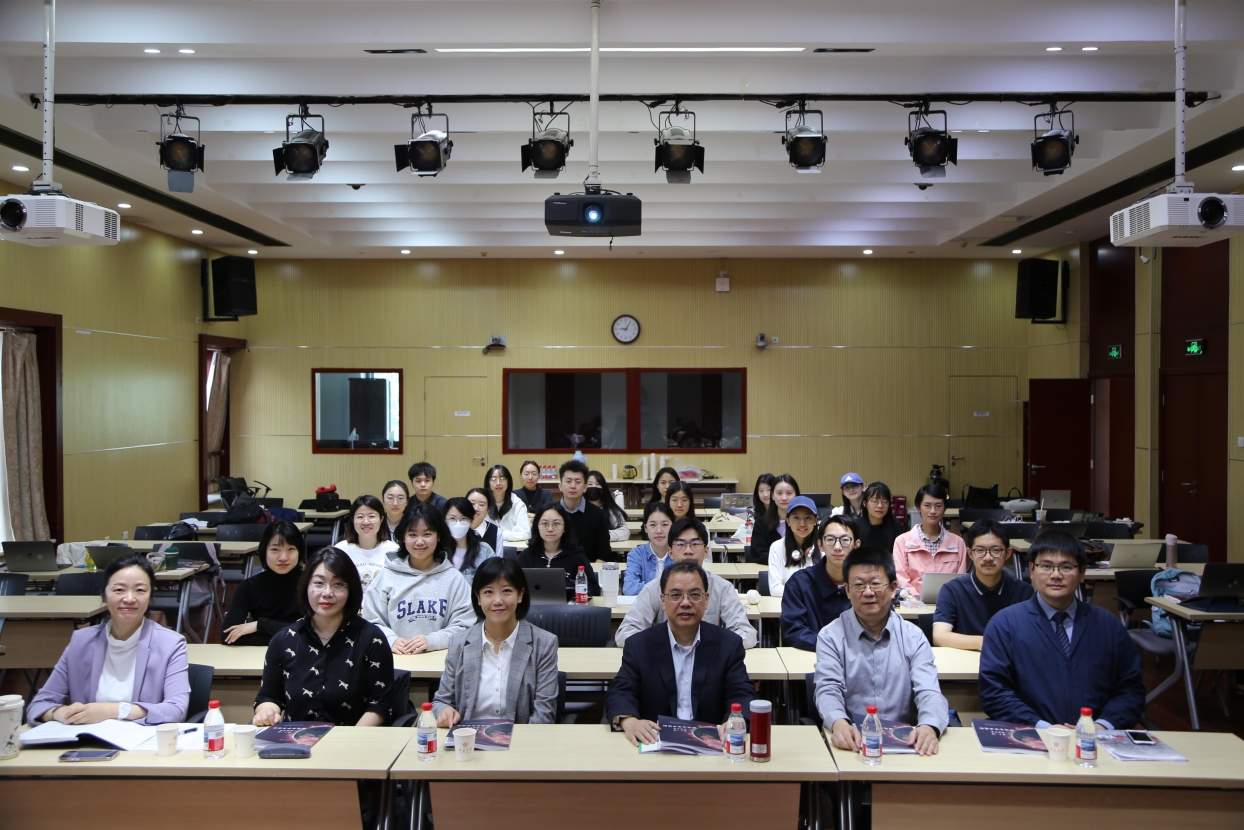
Group Photo
Written and Photographed by: Zhang Yuxi
